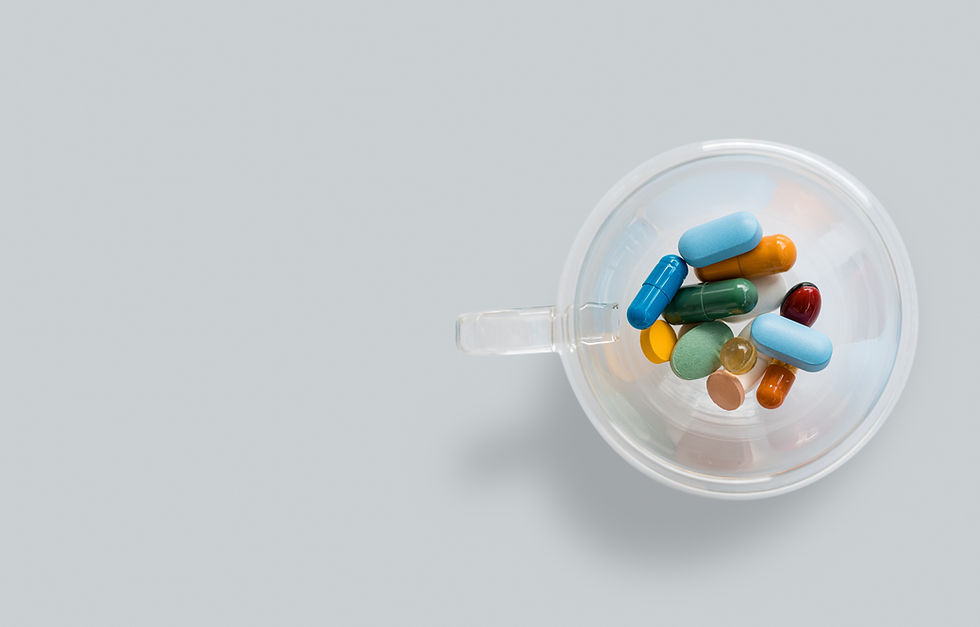Antidepressant medications are a cornerstone in the treatment of depression and other mood disorders. These medications can help alleviate symptoms, improve quality of life, and support overall mental well-being. If you or a loved one has been prescribed antidepressants, it's important to understand how they work, their benefits, potential side effects, and the importance of adhering to your treatment plan.

How Antidepressant Medications Work
Antidepressants work by balancing chemicals in the brain called neurotransmitters, which affect mood and emotions. The most common neurotransmitters targeted by antidepressants are serotonin, norepinephrine, and dopamine. By regulating these chemicals, antidepressants can help improve mood, reduce anxiety, and increase energy levels.
Types of Antidepressant Medications
There are several types of antidepressants, each working in slightly different ways:
Selective Serotonin Reuptake Inhibitors (SSRIs): Examples include fluoxetine (Prozac), sertraline (Zoloft), and citalopram (Celexa). SSRIs are often the first choice due to their effectiveness and relatively mild side effects.
Serotonin-Norepinephrine Reuptake Inhibitors (SNRIs): Examples include venlafaxine (Effexor) and duloxetine (Cymbalta). SNRIs can be effective for patients who do not respond to SSRIs.
Tricyclic Antidepressants (TCAs): Examples include amitriptyline and nortriptyline. TCAs are older medications that can be very effective but may have more side effects.
Monoamine Oxidase Inhibitors (MAOIs): Examples include phenelzine (Nardil) and tranylcypromine (Parnate). MAOIs are typically used when other medications have not been effective, due to their dietary restrictions and potential side effects.
Atypical Antidepressants: Examples include bupropion (Wellbutrin) and mirtazapine (Remeron). These medications have unique mechanisms of action and can be effective alternatives for certain patients.
Benefits of Antidepressant Medications
Symptom Relief: Antidepressants can significantly reduce symptoms of depression, such as sadness, loss of interest, and fatigue.
Improved Functioning: With symptom control, individuals often experience better functioning in daily life, including work, relationships, and self-care.
Enhanced Quality of Life: Effective treatment can lead to an improved overall sense of well-being and life satisfaction.
Potential Side Effects
While antidepressants can be highly effective, they may also cause side effects. Common side effects include:
Nausea: This is often temporary and may improve over time.
Weight Gain: Some antidepressants can lead to increased appetite and weight gain.
Sexual Dysfunction: Reduced libido or difficulty achieving orgasm can occur.
Sleep Disturbances: Insomnia or drowsiness may be side effects of certain medications.
Dry Mouth: This can usually be managed with increased water intake or sugar-free gum.
Managing Side Effects
If you experience side effects, it's important to discuss them with your healthcare provider. They can adjust the dosage, switch medications, or suggest ways to manage side effects. Never stop taking your medication without consulting your provider, as this can lead to a relapse of symptoms.
The Importance of Adherence
Adhering to your prescribed medication regimen is crucial for managing your condition effectively. Here are some tips to help you stay on track:
Set Reminders: Use alarms, apps, or pill organizers to remind you to take your medication.
Educate Yourself: Understanding your medication and how it helps can motivate you to stick with your treatment.
Communicate: Keep an open line of communication with your healthcare provider about any concerns or side effects.
Conclusion
Antidepressant medications are a vital tool in the management of depression and other mood disorders. By understanding how these medications work, being aware of potential side effects, and adhering to your treatment plan, you can take an active role in your mental health care. Always work closely with your healthcare provider to ensure your treatment is tailored to your needs, and never hesitate to ask questions or express concerns about your medication. Your health and well-being are a collaborative effort between you and your healthcare team.
4o

Comments